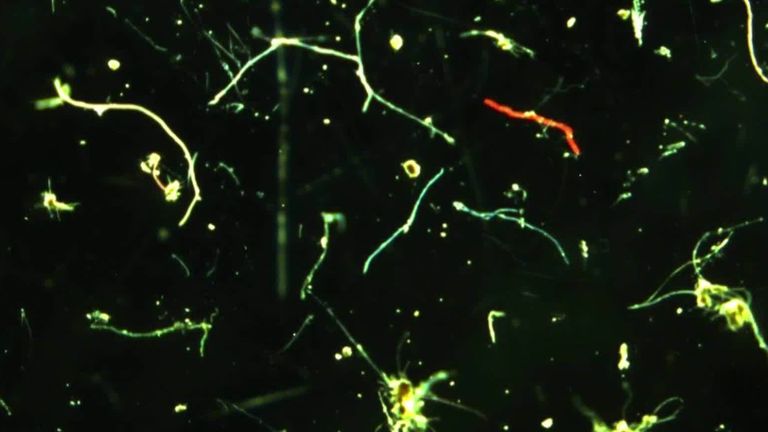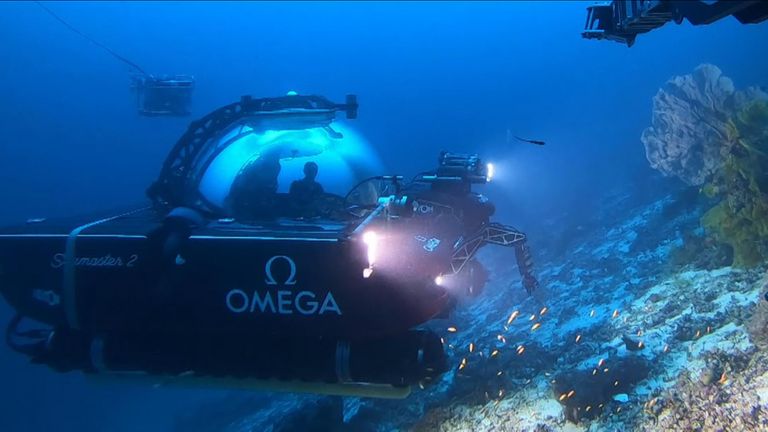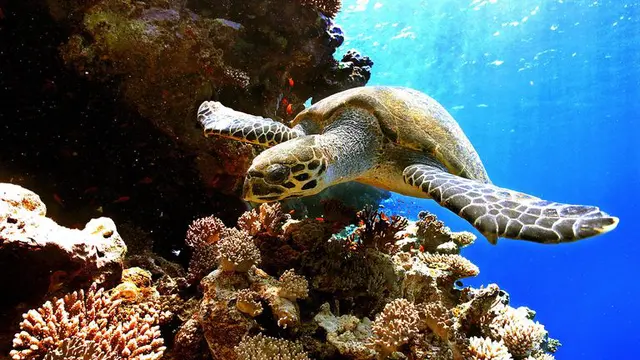The deep ocean is warming more slowly than the surface, but a new study shows that by the end of the century it could change catastrophically.
Scientists came to the grim conclusion after using a metric known as climate velocity, which defines the speed and direction a species shifts as the ocean warms.
In the study, led by University of Queensland PhD student Isaac Brito-Morales, the researchers calculated the climate velocity for the past 50 years.
Using data from 11 climate models, the team then calculated the climate velocity for the rest of this century.

Oxygen levels plummeting in our oceans
Mr Brito-Morales explained: "This allowed us to compare climate velocity in four ocean depth zones, assessing in which zones biodiversity could shift their distribution the most in response to climate change."
The team's findings, published in the journal Nature Climate Change, showed that climate velocity is currently twice as fast at the surface because of greater surface warming.
And as a result, deeper-living species are less likely to be at risk from climate change than those at the surface.
But Mr Brito-Morales warned: "However by the end of the century, assuming we have a high-emissions future, there is not only much greater surface warming, but also this warmth will penetrate deeper.
"In waters between a depth of 200 metres and 1000 metres, our research showed climate velocities accelerated to 11 times the present rate.
"And in an interesting twist, not only is climate velocity moving at different speeds at different depths in the ocean, but also in different directions, which poses huge challenges to the ways we design protected areas."

Final resting place for tonnes of plastic
Professor Anthony Richardson, the senior researcher on the paper, said it showed aggressive action was needed to manage carbon emissions and warming oceans.
"Significantly reducing carbon emissions is vital to control warming and to help take control of climate velocities in the surface layers of the ocean by 2100," he said.
"But because of the immense size and depth of the ocean, warming already absorbed at the ocean surface will mix into deeper waters."

How Deep Ocean Live unfolded
Professor Richardson said marine life in the deep ocean would "face escalating threats from ocean warming until the end of the century, no matter what we do now".
He said the only option to protect such life was to "urgently alleviate" human-generated threats such as seabed mining and deep-sea bottom fishing.
"The best way to do this is to declare large, new protected areas in the deep ocean where damage to ocean life is prohibited, or at least strictly managed," he added.
In 2018, the UK government called for a third of the world's oceans to be classified as
protected areas
by 2030.
The move was a significant victory for
Sky Ocean Rescue
, which has campaigned for tighter marine protection.
 简体中文
简体中文





